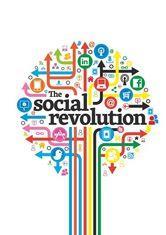
YouTube, Klout, Facebook, Twitter, Google+ - the list goes on and on, and it all gives you an opportunity to link up with the world and, specifically, your end customers.
The new business generation - whatever sector you’re in - is tapping into this huge other world of communication constantly, whether it be via our PCs at the office or smartphones (and much of the time, both). And quite simply, it’s where your consumer base is, both young and old.
A huge percentage of us access social media through one medium or another, and even before we get out of bed in the morning, many of us have logged in to say something. A well-placed advert or status update could sway a couple of thousand people into picking up some strawberries on the way to work or pop the idea of having a stir fry with broccoli for their dinner.
It’s the place to be to influence the masses. It’s simple and it’s free. So what are you waiting for?
what’s your status?
Facebook launched fewer than 10 years ago in 2004, and has revolutionised not only the way people socialise, but consume a wide range of products. At last count it had approximately 845 million active users. When you consider that’s nearly a tenth of the world’s population, you can’t argue with that kind of coverage. Pages like Chiquita have in the region of 36,150 ‘likes’ and major retailers like Tesco have over 670,000 likes (and counting). By liking the product or company page - which is entirely free to set up - those consumers see whatever that page is updating on their statuses, which creates a constant and recognisable profile and persona, provided you keep up your presence.
Last year it was estimated that 70 per cent of the businesses in the UK have a Facebook page. Personal Facebook pages are usually not public and individuals very much stay within their own social groups, which is why when certain consumers like a page it can spread like wildfire as that action will show up on their 500 or so friends’ news feeds.
Tweet tweet!
Twitter came along two years after Facebook in 2006 with more of a business-facing aim. Rather than a place for people to gossip online with the people they already know like Facebook, Twitter is open to everybody and you can ‘follow’ the likes of Nigella Lawson or Sir Alan Sugar if you so wish. It’s a massive system with so much information floating around on it from an estimated 140m active users who tweet 340m updates a day. The #freshproduce scene is wide within the food area and this is the way that a lot of people in the industry - from marketing companies to growers, packers and retailers - are not only publicising their products and services, but organising meetings and communicating in general.
By following a hashtag people can communicate, network and brainstorm, creating an accessible and free platform for almost anything. -